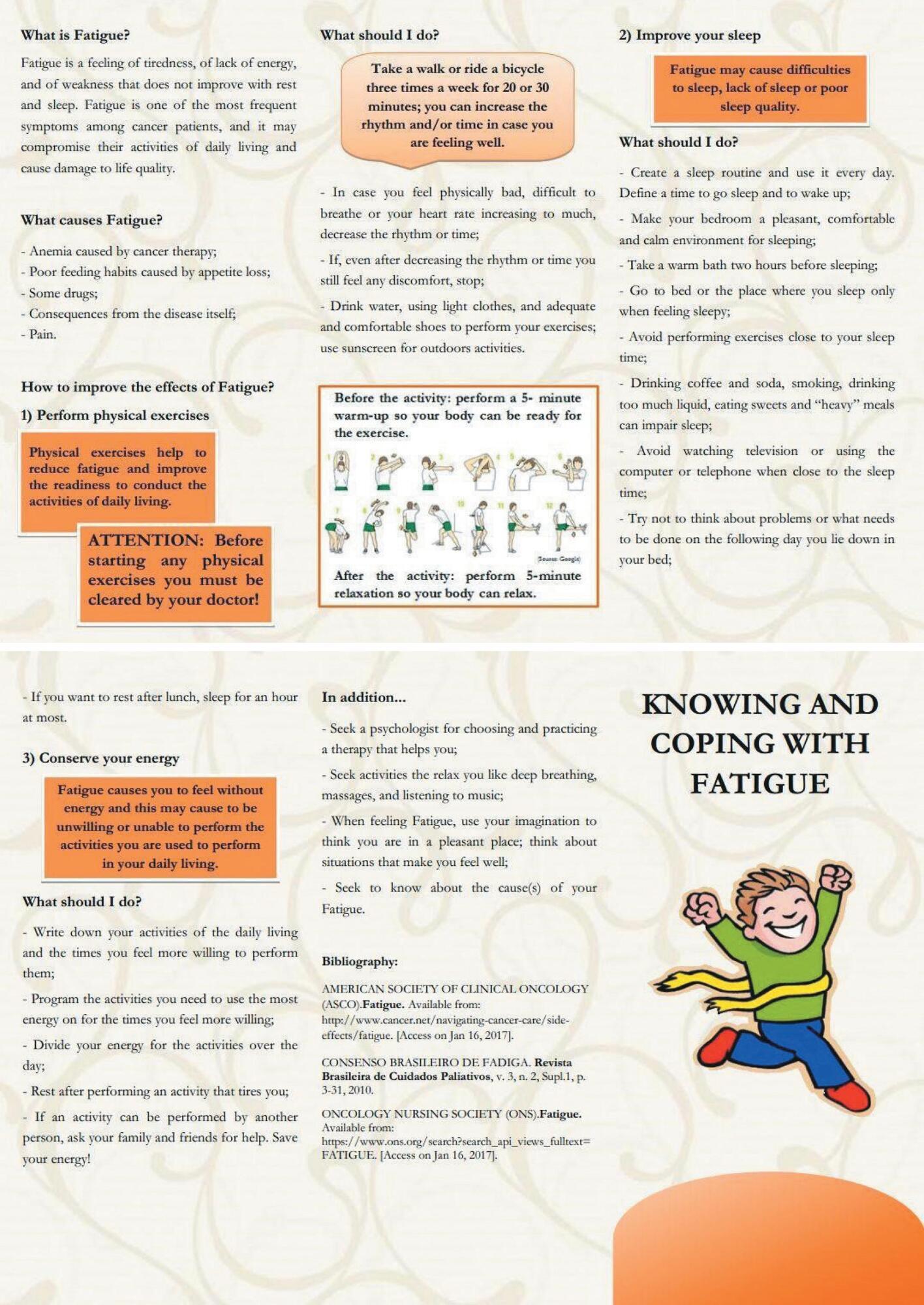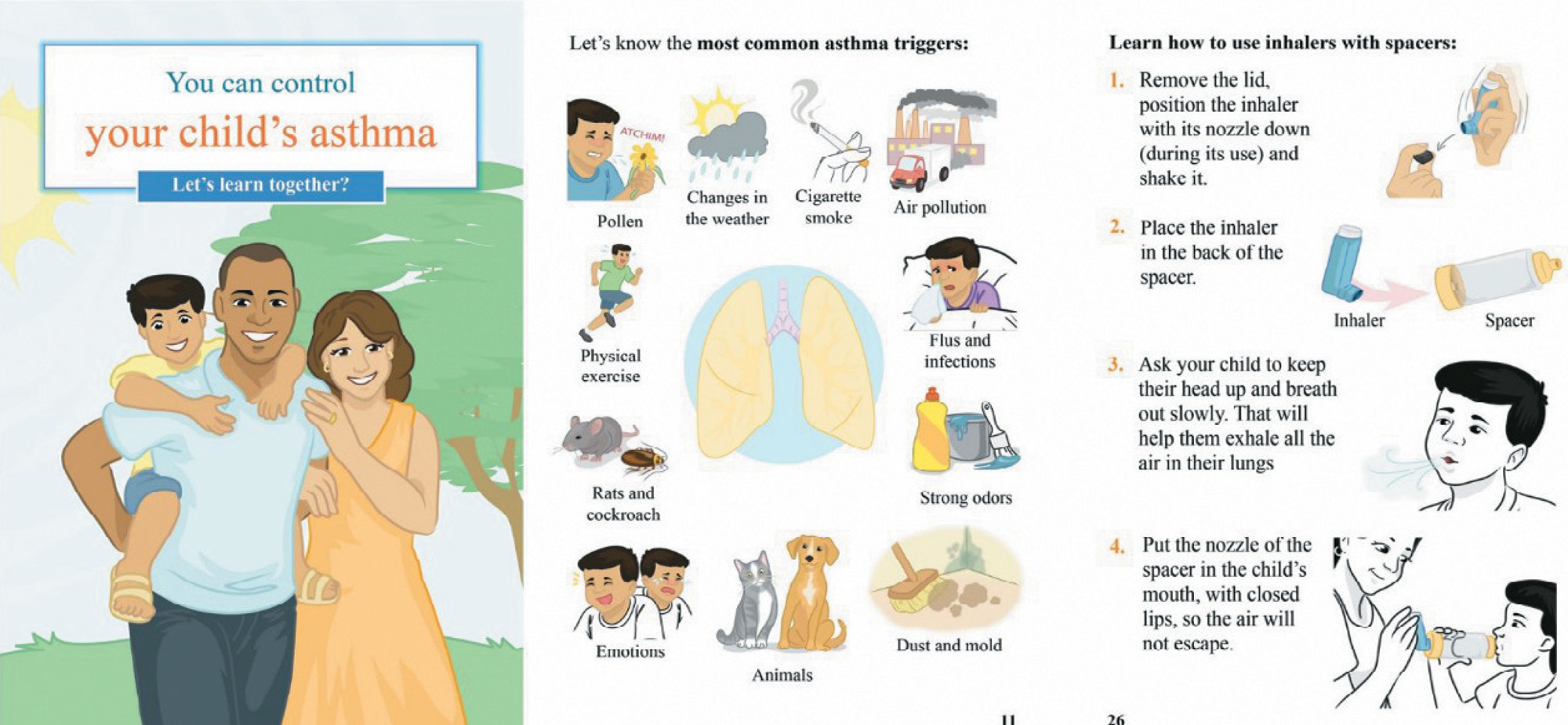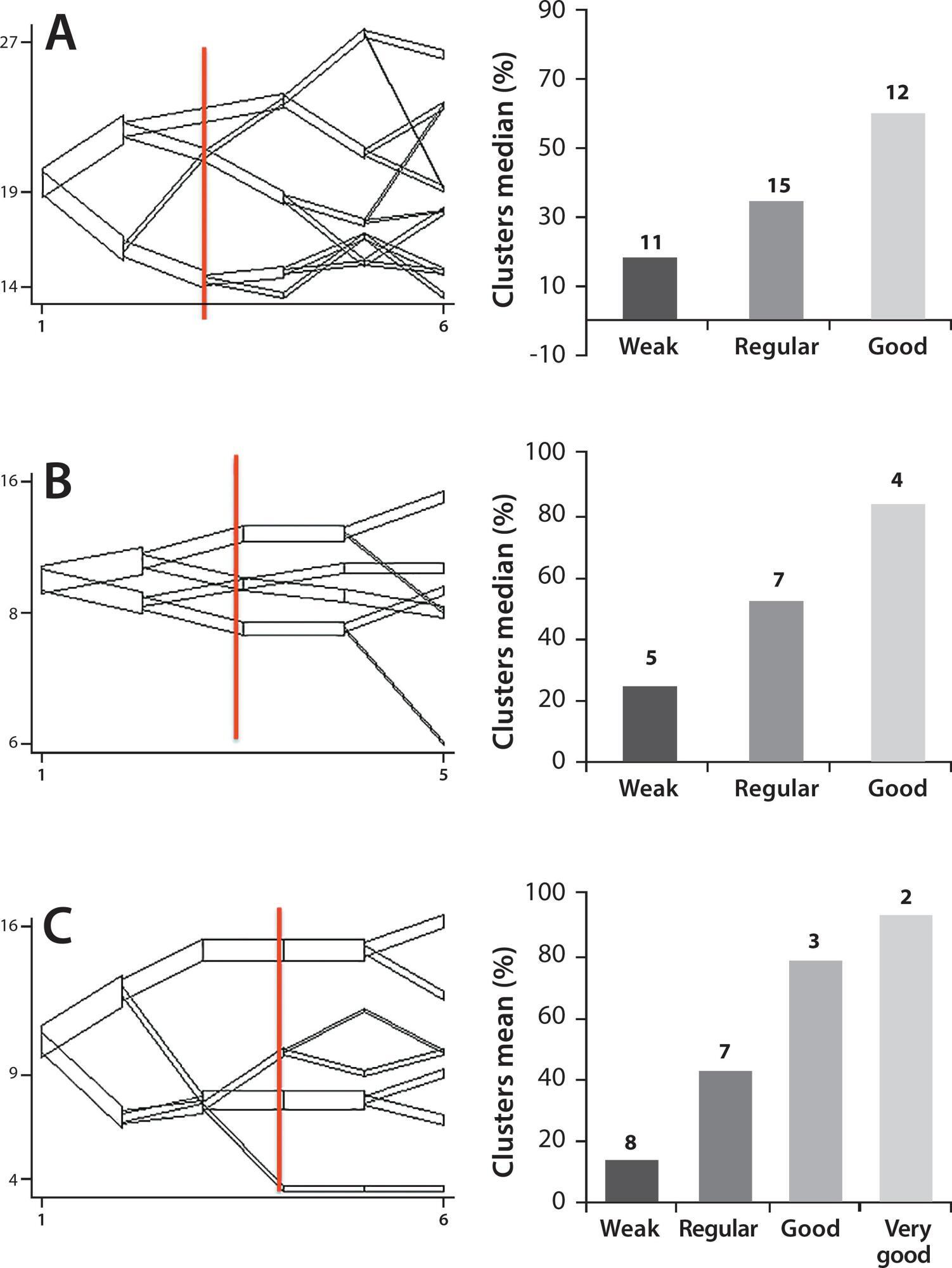-
01-01-2016
Nurses’ managerial knowledge in the hospital setting
Revista Brasileira de Enfermagem. 2016;69(4):676-683
Abstract
Nurses’ managerial knowledge in the hospital setting
Revista Brasileira de Enfermagem. 2016;69(4):676-683
DOI 10.1590/0034-7167.2016690409i
Views0See moreABSTRACT
Objective:
to analyze nurses’ managerial skills in the hospital setting, their perception of their own education and the relevance of training for their professional practice.
Method:
qualitative study based on the dialectical hermeneutics framework. Thirty-two nurses from three hospitals in the Brazilian state of Minas Gerais contributed to the study by taking part in six focus groups. Records were transcribed and three categories emerged from content analysis.
Results:
results evidenced the following managerial skills: supervision, leadership, decision making, planning and organization, as well as the relevance of education centers for their improvement and the continuing development of the nurses’ managerial skills.
Conclusion:
the authors believe this investigation will contribute for the improvement of nurses’ necessary managerial skills and also to identify gaps in this area of their education.
-
01-01-2016
Analysis of obstetric care provided by the Mobile Emergency Care Service
Revista Brasileira de Enfermagem. 2016;69(4):669-675
Abstract
Analysis of obstetric care provided by the Mobile Emergency Care Service
Revista Brasileira de Enfermagem. 2016;69(4):669-675
DOI 10.1590/0034-7167.2016690408i
Views1See moreABSTRACT
Objective:
analyze the pertinence of calls made by obstetric users of the Mobile Emergency Care Service (SAMU 192) of Botucatu-SP.
Method:
retrospective and analytical research. All records of prehospital obstetric care delivered by the SAMU 192 in 2012 were analyzed. To be considered responsive, calls should lead to referral to a reference obstetric hospital or be classified with the colors red, orange and yellow, according to risk criteria defined by the Ministry of Health.
Results:
considering the two outcomes evaluated: referral to a reference hospital and risk criteria defined by the Ministry of Health, 6.7% and 75.6% of the calls were not pertinent, respectively. There was no matching between outcomes, neither variation between primiparas and multiparas as regards the call pertinence.
Conclusion:
this study ratifies the need for implementing a risk classification protocol in obstetrics, and support managers in the organization, qualification and effective implementation of the Rede Cegonha.
-
01-01-2016
Experiences with severe maternal morbidity: a qualitative study on the perception of women
Revista Brasileira de Enfermagem. 2016;69(4):662-668
Abstract
Experiences with severe maternal morbidity: a qualitative study on the perception of women
Revista Brasileira de Enfermagem. 2016;69(4):662-668
DOI 10.1590/0034-7167.2016690407i
Views0See moreABSTRACT
Objective:
to know and analyze the experiences of women who developed an episode of Severe Maternal Morbidity.
Method:
this is a qualitative study, in which we interviewed 16 women admitted to a tertiary level hospital, as a result of this morbid state. We used content analysis in data processing.
Results:
two categories were identified: “Understanding maternal morbidity as a negative presence” and “Moving ahead: on constant alert”. The interviewees mentioned negative aspects, such as treatment difficulties and hospitalization, feelings of fear, concern for the fetus, frustration with the idealized pregnancy, trauma; and positive aspects, such as learning and the expression of the divine will in the experience of illness.
Conclusion:
effective care during the prenatal period, delivery and postpartum period should provide adequate support for the prevention and assistance in Severe Maternal Morbidity.
-
01-01-2016
Dialogue: network that intertwines the pedagogical relationship into the practical-reflective teaching
Revista Brasileira de Enfermagem. 2016;69(4):654-661
Abstract
Dialogue: network that intertwines the pedagogical relationship into the practical-reflective teaching
Revista Brasileira de Enfermagem. 2016;69(4):654-661
DOI 10.1590/0034-7167.2016690406i
Views0See moreABSTRACT
Objective:
to understand how dialogue occurs in the pedagogical relation in the practical reflective teaching in an undergraduate program in nursing.
Method:
qualitative research, case study. Data collection was conducted from May 2013 to September 2014 with eight professors of Nursing, by means of observation and interviews. Data analysis followed the operational proposal constituted by the exploratory stage and the interpretive stage.
Results:
point the dialogue established within the pedagogical relation as a challenge to be faced in practical-reflective teaching, so professor and student build a relationship that foster thought and action in the theoretical context and in the field of practice.
Conclusion:
in establishing a dialogic-reflective tone in the pedagogical relationship, the professor opens paths to new discoveries, enabling the creation of teaching-learning spaces that stimulate autonomy, abilities, and critical and reflective attitudes of students along their education.
-
01-01-2016
Nursing care through the perception of hospitalized children
Revista Brasileira de Enfermagem. 2016;69(4):646-653
Abstract
Nursing care through the perception of hospitalized children
Revista Brasileira de Enfermagem. 2016;69(4):646-653
DOI 10.1590/0034-7167.2016690405i
Views0See moreABSTRACT
Objective:
to describe the perception of hospitalized children of school age, on nursing care and understand what are, from their perspective, the best ways to address it to when performing such care.
Method:
qualitative, descriptive, exploratory research, with concepts of Vygotsky used as theoretical framework. The data collection occurred through interviews mediated by drawings and was performed with ten school children, with the interview later transcribed and submitted to a thematic analysis.
Results:
showed the importance of playing during hospitalization, of a friendly and caring approach and providing explanations regarding the performed procedures.
Conclusion:
nursing professionals need to consider how the children would like to receive the care being provided, so that their singularities are respected, characterizing nursing actions according to a perspective of the whole human being.
-
01-01-2016
Cost of dressings for prevention of sacral pressure ulcers
Revista Brasileira de Enfermagem. 2016;69(4):641-645
Abstract
Cost of dressings for prevention of sacral pressure ulcers
Revista Brasileira de Enfermagem. 2016;69(4):641-645
DOI 10.1590/0034-7167.2016690404i
Views0See moreABSTRACT
Objective:
to identify costs of dressings to prevent sacral pressure ulcers in an adult intensive care unit in Paraná, Brazil.
Methods:
secondary analysis study with 25 patients admitted between October 2013 and March 2014, using transparent polyurethane film (n=15) or hydrocolloid dressing (n=10) on the sacral region. The cost of each intervention was based on the unit amount used in each type of dressing, and its purchase price (transparent film = R$15.80, hydrocolloid dressing = R$68.00).
Results:
the mean cost/patient was R$23.17 for use of transparent film and R$190.40 for use of hydrocolloid dressing. The main reason for changing the dressing was detachment.
Conclusion:
the transparent film was the most economically advantageous alternative to prevent sacral pressure ulcers in critical care patients. However, additional studies should be carried out including assessment of the effectiveness of both dressings.
-
01-01-2016
Health practices: the view of the black elderly population in a terreiro community
Revista Brasileira de Enfermagem. 2016;69(4):633-640
Abstract
Health practices: the view of the black elderly population in a terreiro community
Revista Brasileira de Enfermagem. 2016;69(4):633-640
DOI 10.1590/0034-7167.2016690403i
Views1See moreABSTRACT
Objective:
to understand health practices of black, elderly people in a terreiro community (community of followers of traditional African-Brazilian religions).
Method:
qualitative descriptive study under the Black-African paradigm of civilization constituted by the Black-African cultural complex and the structuring elements of the African cosmovision. Semi-structured interviews were carried out from July to September 2013, with six black older people from a terreiro community in Porto Alegre, RS.
Results:
thematic content analysis resulted in the following categories: Ancestry; Belonging: the way to know and practice health; Health knowledge and practices in terreiro communities; and Complementarity: promoting health in the terreiro and traditional medicine and its respective subcategories.
Conclusion:
the study understood the importance of having a knowledge of the practices of African traditions in both the lifestyle and health of the older black population to help with nursing planning and interventions in response to their needs.
-
01-01-2016
Social representations of citizenship by inpatients: implications for hospital care
Revista Brasileira de Enfermagem. 2016;69(4):625-632
Abstract
Social representations of citizenship by inpatients: implications for hospital care
Revista Brasileira de Enfermagem. 2016;69(4):625-632
DOI 10.1590/0034-7167.2016690402i
Views0See moreABSTRACT
Objective:
examine the social representations of citizenship by inpatients receiving hospital care.
Method:
qualitative approach, using the Theory of Social Representations as a framework, with 31 inpatients in the internal medicine sector of a public university hospital. Semi-structured interviews were conducted, whose data were submitted to the Alceste program, with application of lexical analysis.
Results:
patients understand their rights, and citizenship in the care process is understood based on the right to health, to receive good care from a technical and human standpoint.
Conclusion:
being well treated as a person and the provision of technical-procedural care are rights of patients; the absence of one or the other implies, therefore, lack of respect for their citizenship.

-
ORIGINAL ARTICLE10-21-2019
Consumption of alcohol and drugs and school absenteeism among high school students of public schools
Revista Brasileira de Enfermagem. 2019;72(6):1692-1698
Abstract
ORIGINAL ARTICLEConsumption of alcohol and drugs and school absenteeism among high school students of public schools
Revista Brasileira de Enfermagem. 2019;72(6):1692-1698
DOI 10.1590/0034-7167-2018-0828
Views0See moreABSTRACT
Objective:
To evaluate the relation between the consumption of alcohol and other drugs and school absenteeism in high school students of public schools in the 30 days prior to data collection.
Method:
Cross-sectional study of quantitative character conducted from May to September 2017, with 282 high school students of public schools of Mossoró-RN. We used a closed questionnaire with questions about drug consumption as our instrument of analysis. We performed hierarchical binary logistic regression by using the SPSS 20.0.
Results:
In bivariate analysis, the relation between absenteeism and drug consumption patterns proved to be significant to those who engage in heavy episodic drinking of alcohol and in the use of tobacco, inhalants and marijuana. The adjusted regression model only included the variables tobacco and heavy episodic drinking of alcohol.
Conclusion:
The hierarchical binary logistic regression analysis corroborated with absenteeism outcomes, explaining it in 12.3% of cases.
-
ORIGINAL ARTICLE01-14-2022
Knowledge, attitudes and practices related to sexually transmitted infections of men in prison
Revista Brasileira de Enfermagem. 2022;75:e20201273
Abstract
ORIGINAL ARTICLEKnowledge, attitudes and practices related to sexually transmitted infections of men in prison
Revista Brasileira de Enfermagem. 2022;75:e20201273
DOI 10.1590/0034-7167-2020-1273
Views0See moreABSTRACT
Objectives:
to analyze the knowledge, attitudes, and practices related to sexually transmitted infections of men in prison.
Methods:
qualitative study, based on the methodology Knowledge, Attitude and Practice, conducted with 30 men in prison. The study applied individual interviews submitted to the analyze of the discourse.
Results:
the incipient knowledge of men was associated with: self-illness and the others’, diagnosis, and perception of risk behavior, pervaded by distrust or lack of understanding of the rapid test for detection. The attitudes involved culpability of partnerships, non-adherence to prevention inputs, and resistance to look for health services. The practices are linked to health care after the identification of the disease, use of penile condoms, and attention to the partnership.
Conclusions:
the reduced knowledge about Sexually Transmitted Infections makes attitudes stereotyped, stigmatized, compromised by the level of education. The level of health care and the limits of deprivation of liberty weaken the practices.
-
09-16-2019
Leprosy educational practices with adolescents: an integrative literature review
Revista Brasileira de Enfermagem. 2019;72(5):1397-1404
Abstract
Leprosy educational practices with adolescents: an integrative literature review
Revista Brasileira de Enfermagem. 2019;72(5):1397-1404
DOI 10.1590/0034-7167-2017-0458
Views0See moreABSTRACT
Objectives:
to identify scientific evidence in the literature regarding educational actions on leprosy developed with adolescents.
Method:
an integrative review of the literature, with the following research question: what are the leprosy educational practices currently being developed with adolescents? The search was performed in the following databases: MEDLINE, Scopus, LILACS, CINAHL, BVS Hanseníase and other sources, using “adolescent”; “leprosy”; “health education”; “public health”, and “public health practice” as keywords. Results: the sample was comprised of nine studies. Leprosy educational practices with adolescents verifiably promote change in knowledge when they are based on constructivist methodologies. The nurse is recognized as a professional with potential for developing these educational practices. Final considerations: actions for leprosy education with adolescents do lead to changes in knowledge, but new research is needed to evaluate their effectiveness in further improving this knowledge as well as changing behaviors and practices.

-
ORIGINAL ARTICLE10-21-2019
Work overload and risk behaviors in motorcyclists
Revista Brasileira de Enfermagem. 2019;72(6):1479-1484
Abstract
ORIGINAL ARTICLEWork overload and risk behaviors in motorcyclists
Revista Brasileira de Enfermagem. 2019;72(6):1479-1484
DOI 10.1590/0034-7167-2018-0279
Views0See moreABSTRACT
Objective:
to analyze the association between work overload and risk behaviors adopted by motorcyclists.
Method:
a cross-sectional study of injured motorcycle drivers hospitalized at the Hospital da Restauração Governador Paulo Guerra in the city of Recife, PE, from May to September 2016. A questionnaire was applied containing sociodemographic variables related to work overload and risk behaviors adoption. Odds Ratio (OR) and 95% Confidence Interval were used to analyze the association between the variables.
Results:
there was a predominance of males (97.6%), mean age 31.44 years (SD = 9.50). There was an association of sleep/fatigue at the accident time with difficulties carrying out work tasks (OR = 3.7), feeling tired during work (OR = 4.6) and feeling under pressure to carry out work tasks (OR = 3.5).
Conclusion:
work overload was associated with risk behaviors adoption. It is believed that this fact can have an impact on the occurrence and severity of accidents.
-
ORIGINAL ARTICLE10-21-2019
Educational technology for fatigue management related to antineoplastic chemotherapy
Revista Brasileira de Enfermagem. 2019;72(6):1519-1525
Abstract
ORIGINAL ARTICLEEducational technology for fatigue management related to antineoplastic chemotherapy
Revista Brasileira de Enfermagem. 2019;72(6):1519-1525
DOI 10.1590/0034-7167-2018-0505
Views0See moreABSTRACT
Objective:
To construct and validate an educational technology (ET) on fatigue and non-pharmacological strategies for the management of this symptom in people with cancer undergoing outpatient antineoplastic chemotherapy.
Method:
This is a methodological study composed of three stages: 1) elaboration of the ET using the theoretical-methodological model of Doak, Doak and Root; 2) validation of content and appearance by seven nurses via the content validity index (CVI); and 3) a pilot test with 10 patients.
Results:
The ET “Knowing and coping with fatigue” contemplates the definition of fatigue, its causes and the interventions of physical exercise practice, sleep hygiene, energy conservation and behavioral intervention. The overall CVI obtained with the judges was 0.95.
Conclusion:
The ET presented content and appearance validity for health education regarding fatigue related to antineoplastic chemotherapy in outpatient cancer patients.

-
ORIGINAL ARTICLE10-21-2019
Functional independence of elderly patients who fell: a follow-up study
Revista Brasileira de Enfermagem. 2019;72(6):1715-1722
Abstract
ORIGINAL ARTICLEFunctional independence of elderly patients who fell: a follow-up study
Revista Brasileira de Enfermagem. 2019;72(6):1715-1722
DOI 10.1590/0034-7167-2018-0845
Views0See moreABSTRACT
Objective:
to evaluate, in emergency hospital service and at home, the functional independence of elderly people who fell.
Method:
longitudinal study with 151 elderly. Functional Independence Measure (FIM) was used. Statistical tests were performed with univariate and bivariate analysis.
Results:
mean of total FIM value in the hospital was 70.4; and at home 84.3 (p <0.001). Independence was lower in the motor domain, in “self-care”, “mobility” and “locomotion” dimensions, in the two evaluations (p <0.001). Dependence reduced from 97.3% elderly in the hospital to 82.8% at home (p <0.001). There was a negative correlation between total FIM and age, number of medications, number of diseases and hospitalization time in both evaluations. Femoral and hip fractures were associated with lower total FIM values (p <0.001).
Conclusion:
the elderly had less independence in the hospital compared to at home, with greater impairment in the motor domain and “self-care”, “mobility” and “locomotion” dimensions, in the two moments evaluated.

-
ORIGINAL ARTICLE05-24-2021
Content validation of an educational booklet for asthma control and management in children
Revista Brasileira de Enfermagem. 2021;74:e20200353
Abstract
ORIGINAL ARTICLEContent validation of an educational booklet for asthma control and management in children
Revista Brasileira de Enfermagem. 2021;74:e20200353
DOI 10.1590/0034-7167-2020-0353
Views0See moreABSTRACT
Objective:
to validate the content and appearance of the educational booklet “You can control your child’s asthma – let’s learn together?” with parents and caregivers of children with asthma.
Methods:
this is a methodological study, carried out with 34 mothers and caregivers of children, from two to 10 years old, diagnosed with asthma. The educational booklet validation was performed using Content Validity Index (CVI) and assessment of comprehension, attractiveness, self-efficacy, persuasion, and cultural acceptance domains.
Results:
the booklet was considered clear (99.8%) and relevant (100%), with a global CVI of 0.99. Domain assessment proved to be an easy-to-understand tool, culturally appropriate, attractive, with persuasive power and promoting self-efficacy.
Conclusion:
the booklet is valid and adequate for promoting the self-efficacy of parents and caregivers in childhood asthma control and management, potentially scalable to other realities of outpatient care.

-
ORIGINAL ARTICLE04-22-2020
Care coordination and longitudinality in primary health care in the Brazilian Amazon
Revista Brasileira de Enfermagem. 2020;73(3):e20180841
Abstract
ORIGINAL ARTICLECare coordination and longitudinality in primary health care in the Brazilian Amazon
Revista Brasileira de Enfermagem. 2020;73(3):e20180841
DOI 10.1590/0034-7167-2018-0841
Views0See moreABSTRACT
Objectives:
to evaluate the attributes of primary health care, care coordination and longitudinality, from the perception of the professional and patients in the state of Amazonas, Brazil.
Methods:
quantitative evaluative study, in which was used an external evaluation instrument with 469 professionals and 1,888 patients from 367 primary health care facilities that adhered to the Program for Improving Access and Quality of primary health care (Portuguese acronym: PMAQ) standardized by the Ministry of Health. Data were grouped by multivariate cluster analysis in order to find a classification of primary health care from the perspective of professionals and patients.
Results:
the attributes of coordination and longitudinality are still expressed in a weak and undeveloped way in the Brazilian Amazon scenario.
Conclusions:
it is necessary to recognize the organizational barriers and what could promote conditions for the performance of health care teams in the perspective of a continuous, integral and coordinated care.

Search
Search in:
Nuvem de Tags
Adolescente (85) Atenção Primária à Saúde (239) COVID-19 (91) Criança (91) Cuidados de Enfermagem (269) Educação em Enfermagem (151) Educação em Saúde (139) Enfermagem (930) Enfermagem Pediátrica (86) Estudantes de Enfermagem (77) Estudos de Validação (131) Família (87) Idoso (208) Promoção da Saúde (99) Qualidade de Vida (104) Saúde do Trabalhador (86) Saúde Mental (145) Saúde Pública (82) Segurança do Paciente (150) Tecnologia Educacional (100)



